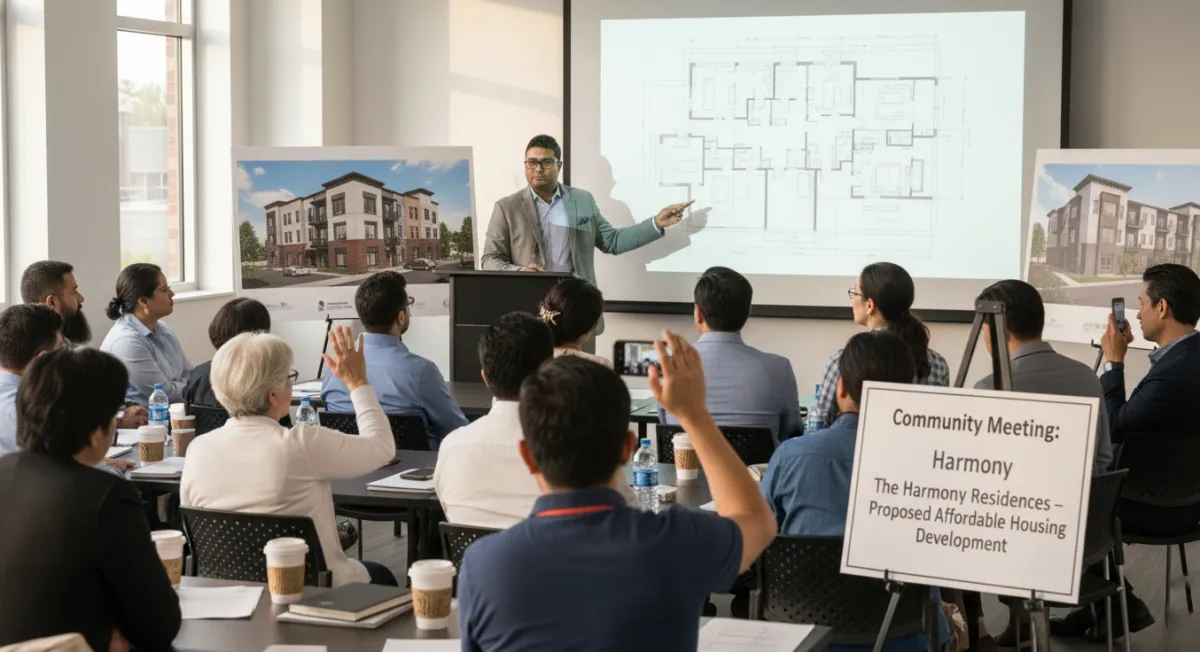
How to Get Your DEVELOPMENT Project APPROVED: Guide to Zoning, Land Use, and Entitlements with Vas Persaud!
How to Get Your Development Project Approved: Zoning, Entitlements, and Land Use with Vas Persaud
Why this episode matters for affordable housing investors
If you’ve ever looked at a piece of land and thought, “This would be perfect for housing,” you quickly learn there’s a long road between imagination and construction. That road is called entitlements — the approvals that turn vacant land into shovel-ready projects.
In this episode of the Affordable Housing & Real Estate Investing Podcast, host Kent Fai He sits down with Vas Persaud, founder of EcoVision Homes, a civil engineer turned affordable housing developer. Vas shares decades of experience navigating zoning laws, land use maps, engineering challenges, and community opposition. For anyone who wants to become a developer or understand how projects really get approved, this is a masterclass.
What does “entitlements” mean in real estate development?
Investors and city planners throw around the term “entitlements,” but what does it actually mean?
According to Vas, entitlements are the approvals that confirm a property is legally and practically ready for construction. Without them, you can’t get a construction loan or break ground. He breaks entitlements into three levels.
Planning entitlements: zoning, land use maps, and overall site compatibility.
Engineering entitlements: stormwater management, roads, grading, utilities.
Construction entitlements: detailed building permits that allow vertical construction.
Having all three makes your project truly shovel-ready.
How do zoning and land use shape development opportunities?
Every county has a future land use map that outlines how areas are expected to grow over the next 20 years. These maps determine if a parcel can be residential, industrial, office, or preserved as open space.
For developers, this means:
If a property is zoned correctly, approvals may take as little as 60–90 days.
If you need rezoning or a land use amendment, it can take a year or longer.
Fighting against a city’s long-term plan is like swimming upstream. Success comes easier when you align with what the jurisdiction already wants to see.
What role does community support play in entitlements?
Even if you’ve lined up zoning and engineering approvals, community opposition can derail a project. Vas explained that “not in my backyard” (NIMBY) attitudes often surface when neighbors fear affordable housing will bring crime or traffic.
His solution: consensus building. Engage residents early, listen to concerns, and be willing to adjust designs. Sometimes adding turn lanes, fencing, or landscaping can turn opposition into support.
He also emphasized that today’s workforce housing is for teachers, firefighters, EMTs, and call-center staff who are priced out of living near their jobs. Framing projects around essential workers often shifts public opinion.
What is the difference between variances and conditional use permits?
Both terms confuse new investors:
Variance: a single deviation, like reducing a setback from 10 feet to 9 feet.
Conditional use permit (CUP): approval for multiple deviations with conditions attached, such as fencing, landscaping, or height limits.
Smart developers use CUPs as a middle ground to keep projects moving without triggering full rezoning.
How long does the entitlement process take?
Timelines vary widely:
Small projects with no rezoning: 60–90 days.
Mid-sized subdivisions: 6–12 months.
Large projects with environmental reviews: 18 months or more.
Vas advises developers to budget time and money for community hearings, environmental studies, and traffic improvements.
Key Insights from Vas Persaud
Entitlements are layered: planning, engineering, and construction approvals all matter.
Align with land use maps: don’t fight city plans, find opportunities within them.
Community buy-in is critical: early engagement prevents costly delays.
Affordable housing is workforce housing: the stigma is outdated and must be addressed.
Horizontal vs. vertical work: grading, utilities, and roads (horizontal) always come before homes and apartments (vertical).
Best Quotes from Vas Persaud
“Entitlements mean your land is effectively ready for construction. Without them, you can’t build.”
“Future land use maps tell you where you should and should not develop. Ignore them at your own risk.”
“Consensus building is the key. Every stakeholder is part of your project — from neighbors to city staff.”
“Affordable housing is not just for very low-income people. These are teachers, call-center workers, and first responders priced out of homeownership.”
Common Questions About Development Approvals
What are entitlements in real estate?
Entitlements are approvals confirming that land is ready for construction. They include planning, engineering, and construction permits.
How long does rezoning take?
If consistent with the city’s plan, rezoning may take 60–90 days. If not, expect a year or longer with attorneys and public hearings.
What is the difference between a variance and a CUP?
A variance is a single exception, while a conditional use permit covers multiple deviations with conditions.
How do developers handle traffic concerns?
They often add turn lanes, traffic lights, or redesign site access. In Florida, a single traffic light can cost $300,000–$500,000.
Why is affordable housing so hard to solve?
Because incomes have not kept pace with rising home prices, and solving the issue requires collaboration across zoning boards, developers, financiers, and community stakeholders.
Final Thoughts
This conversation with Vas Persaud highlights why zoning, land use, and entitlements are the “gatekeepers” of real estate development. Understanding them is essential if you want to turn ideas into communities.

Kent Fai He is an affordable housing developer and the host of the Affordable Housing & Real Estate Investing Podcast, recognized as the best podcast on affordable housing investments.
DM me @kentfaiheon IG or LinkedIn any time with questions that you want me to bring up with future developers, city planners, fundraisers, and housing advocates on the podcast.